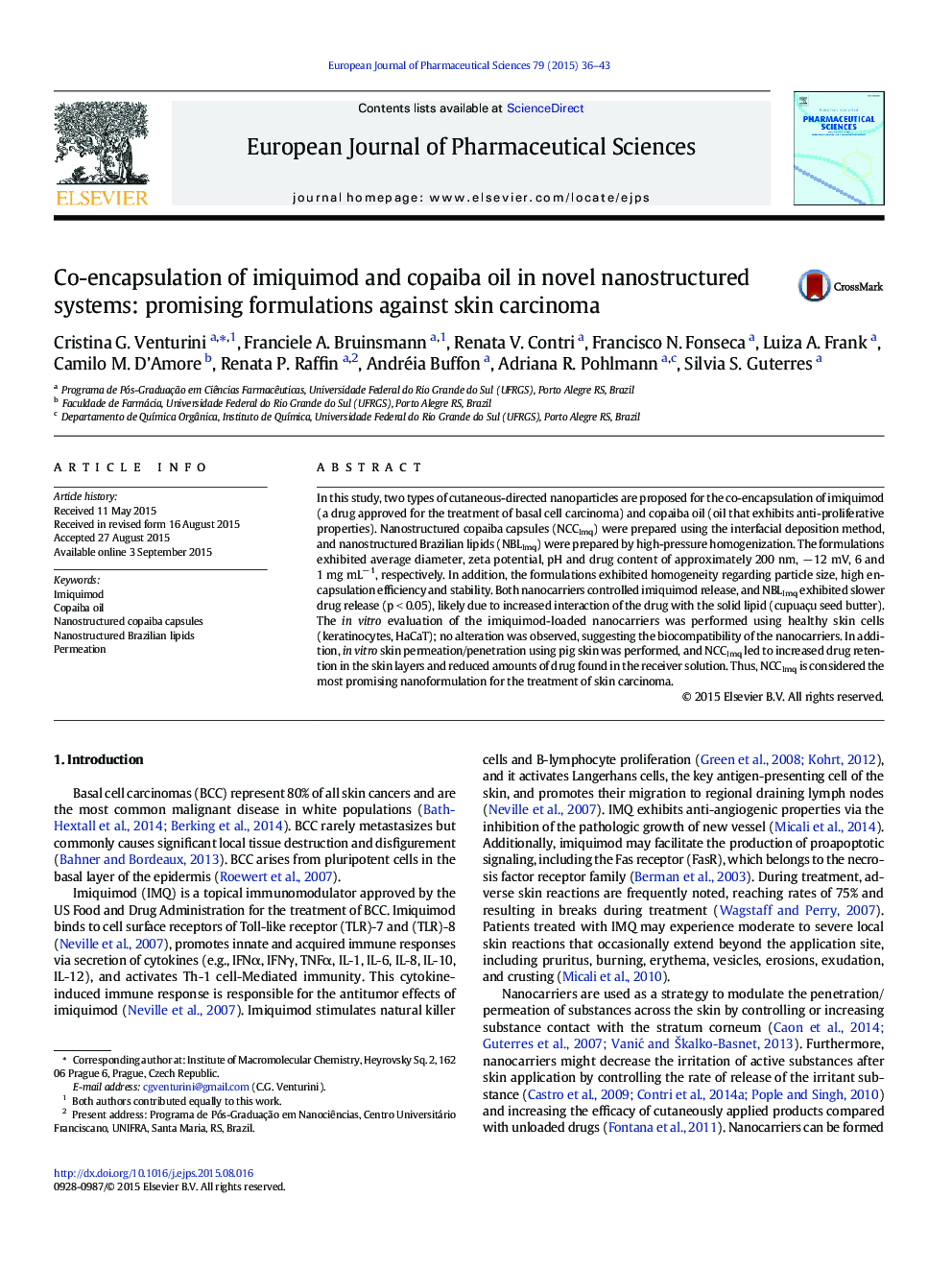| Article ID | Journal | Published Year | Pages | File Type |
|---|---|---|---|---|
| 5809786 | European Journal of Pharmaceutical Sciences | 2015 | 8 Pages |
In this study, two types of cutaneous-directed nanoparticles are proposed for the co-encapsulation of imiquimod (a drug approved for the treatment of basal cell carcinoma) and copaiba oil (oil that exhibits anti-proliferative properties). Nanostructured copaiba capsules (NCCImq) were prepared using the interfacial deposition method, and nanostructured Brazilian lipids (NBLImq) were prepared by high-pressure homogenization. The formulations exhibited average diameter, zeta potential, pH and drug content of approximately 200 nm, â 12 mV, 6 and 1 mg mLâ 1, respectively. In addition, the formulations exhibited homogeneity regarding particle size, high encapsulation efficiency and stability. Both nanocarriers controlled imiquimod release, and NBLImq exhibited slower drug release (p < 0.05), likely due to increased interaction of the drug with the solid lipid (cupuaçu seed butter). The in vitro evaluation of the imiquimod-loaded nanocarriers was performed using healthy skin cells (keratinocytes, HaCaT); no alteration was observed, suggesting the biocompatibility of the nanocarriers. In addition, in vitro skin permeation/penetration using pig skin was performed, and NCCImq led to increased drug retention in the skin layers and reduced amounts of drug found in the receiver solution. Thus, NCCImq is considered the most promising nanoformulation for the treatment of skin carcinoma.
Graphical abstractDownload high-res image (125KB)Download full-size image
